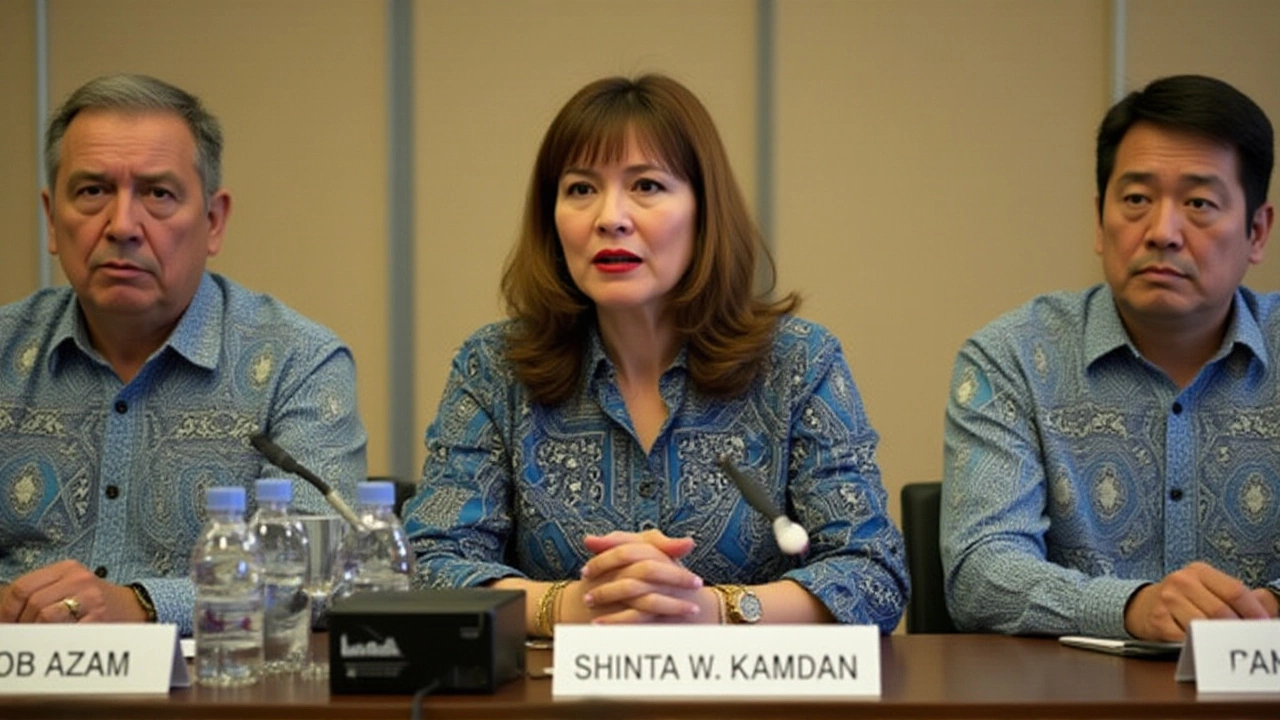On a quiet November day in 2024, President Prabowo delivered a quiet but consequential economic decision: a 6.5% increase in Indonesia’s national minimum wage, set to take effect across all 34 provinces in 2025. The announcement, confirmed by Jakarta-based economic outlet Insights Indonesia, wasn’t accompanied by fanfare—but its impact will ripple through the lives of nearly 49 million formal workers. The goal, as stated plainly, is to boost workers' purchasing power. But here’s the thing: with inflation last year at just 2.63%, this raise isn’t just symbolic—it’s a deliberate recalibration. And for millions of factory workers, delivery drivers, and retail staff, it might be the difference between covering rent or skipping meals.
What This Means for Indonesia’s Workers
The 6.5% increase applies uniformly to Indonesia’s formal workforce, which the Ministry of Manpower estimated at 48.78 million people as of Q4 2023. These are the employees covered under Minister of Manpower Regulation No. 18 of 2022, which governs wage floors in manufacturing, services, and agriculture across the country’s 514 regencies and cities. What’s missing, though, is the actual rupiah figure. We don’t know if a worker in Jakarta is getting an extra Rp120,000 or Rp350,000 per month. That’s a problem. Without the baseline 2024 wage, the percentage means little to the people who need to budget with it.And yet, the decision carries weight. Last year’s 8% hike—announced in November 2023—was already the largest in five years. This year’s smaller increase suggests a shift from rapid adjustment to calibrated stability. The government isn’t just reacting to inflation; it’s trying to outpace it. Indonesia’s consumer price index stood at 152.36 in 2024, meaning prices rose steadily. A 6.5% wage bump, while modest compared to 2023, still outpaces inflation by nearly 2.5 percentage points. That’s real gain. For a worker earning Rp4.2 million monthly, that’s an extra Rp273,000—enough for groceries, school supplies, or a bus ticket to work without borrowing.
Why No One’s Talking About It
Oddly enough, there’s been near silence from the usual players. The Indonesian Employers Association (Apindo), which represents over 10,000 companies and usually pushes back on wage hikes, didn’t issue a single statement. Neither did labor unions like the Indonesian Trade Union Confederation (KSPI). The Wage Council, the tripartite body that typically negotiates these increases, wasn’t mentioned at all. That’s unusual. In past years, these groups clashed publicly over wage formulas, especially the contentious use of regional economic indicators.So why the quiet? One theory: President Prabowo, inaugurated on October 20, 2024, is signaling a new tone. He’s not waiting for consensus—he’s making a decisive move early in his term. Another possibility: the 6.5% figure was already baked into the formula under Government Regulation No. 36 of 2021, which ties wages to inflation and GDP growth. If so, this wasn’t a bold new policy—it was a technical adjustment. But the public messaging? Pure political signal. “Boosting purchasing power” sounds better than “following a formula.”
The Bigger Picture: Wage Policy in Transition
Indonesia’s minimum wage system has always been messy. Before 2021, provinces set their own rates, leading to wild disparities—Jakarta’s wage was triple that of some eastern islands. The 2021 regulation tried to unify it, but implementation remains uneven. Rural employers still underpay. Informal workers—nearly half the labor force—get nothing. And enforcement? Patchy at best.This 2025 increase doesn’t fix that. It doesn’t mention micro-enterprises, domestic workers, or gig economy drivers. No one’s talking about whether the hike will be automatic on January 1, or phased in over months. There’s no word on penalties for employers who cheat. And yet, it’s still significant. It’s the first major economic move by the new administration. It shows the government is listening—not to business lobbyists, but to the people who clean the streets and pack the goods.
What Comes Next?
The real test begins in early 2025. Will wages actually be paid? Will the Ministry of Manpower publish the official rupiah amounts before January? Will provinces like East Java or North Sumatra add their own top-ups? And most importantly—will workers feel the difference?Look at the timeline: the announcement came in November 2024. Implementation starts January 1, 2025. That’s just six weeks to notify employers, update payroll systems, and train HR staff. If the government doesn’t release the exact figures soon, chaos could follow. Employers might delay payments. Workers might protest. The public will notice.
And what about 2026? Will the same formula apply? Will inflation be the only driver? Or will the government start factoring in housing costs, fuel prices, or even the rising cost of rice? Those questions remain unanswered. But for now, the message is clear: the state is trying to give its workers a little more breathing room.
Frequently Asked Questions
How will the 6.5% wage increase affect workers in rural areas compared to cities?
The increase is national, but its real impact varies. A worker in Jakarta earning Rp4.5 million will gain about Rp292,500 monthly, while someone in a rural area earning Rp2.8 million gains only Rp182,000. Since the cost of living is lower outside cities, the rural worker’s purchasing power may rise more proportionally—but without regional adjustments, the gap between urban and rural wages widens further.
Why wasn’t Apindo or labor unions involved in this decision?
Traditionally, minimum wage hikes require tripartite negotiations through the Wage Council. The absence of Apindo or union input suggests President Prabowo may have bypassed the usual process, possibly using presidential authority under Regulation No. 36 of 2021. This could signal a move toward centralized wage control, reducing employer leverage but risking future labor unrest.
Is this wage hike enough to keep up with inflation?
Yes, but barely. Indonesia’s 2024 inflation rate was 2.63%, meaning the 6.5% increase outpaces it by nearly 4 percentage points. That’s a real gain—about 1.5 months’ worth of price increases over the year. But if inflation spikes in 2025 due to fuel subsidies or food shortages, the gain could vanish quickly, especially for workers without overtime or bonuses.
What happens if employers don’t pay the new minimum wage?
The law requires compliance, but enforcement is weak. Penalties exist—fines up to Rp100 million and potential business suspension—but inspections are rare outside major cities. In 2023, only 12% of inspected companies were found non-compliant, and even fewer were penalized. Workers often fear retaliation, so many accept underpayment silently. Without stronger oversight, the 2025 hike risks becoming a paper promise.
Will this increase affect Indonesia’s economy overall?
Possibly. Higher wages mean more consumer spending, especially on essentials like food, transport, and medicine. That could stimulate local markets and small businesses. But if businesses respond by cutting jobs, raising prices, or automating, the net effect could be neutral—or even negative. Economists warn that without productivity gains, wage hikes can fuel inflation later. The real test is whether this boost leads to sustainable growth—or just temporary relief.
Is this the first time Indonesia has raised wages without public consultation?
No. President Joko Widodo’s administration occasionally bypassed the Wage Council during the pandemic, using emergency decrees. But those were framed as temporary. This is different: it’s a permanent adjustment under normal conditions, made without public hearings or employer input. That sets a precedent. Future administrations may follow suit, turning wage-setting into a top-down political tool rather than a negotiated economic policy.

